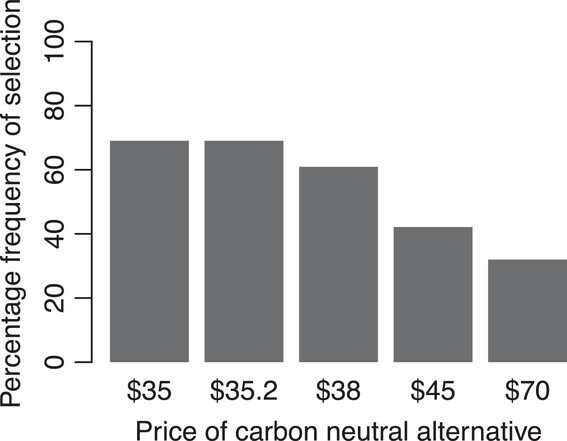Many companies reduce emissions when manufacturing their products or compensate for emissions. By doing the math, it appears that both strategies might help the environment to the same extent. But do consumers differentiate between these measures when buying products and services? A study by Kühne Logistics University (KLU), Universität Hamburg, and the University of Tennessee shows: Yes. Consumers are willing to pay significantly more for products when companies reduce their own emissions, rather than just offsetting them.
Whether it’s recycled aluminum at Apple’s MacBook Air or compensation payments from Microsoft for emissions over the life of an Xbox, climate-friendly products are becoming more and more popular. But do consumers also pay attention to how a neutral climate balance is created? Companies use two ways to accomplish this goal: reducing emissions directly or compensating them afterward.
“Both approaches can make a product climate-neutral and have a positive impact on the environment. Surprisingly, however, the consumers in our study were only willing to spend more on the respective product if emissions were reduced,” says Prof. Christian Troester, Ph.D.. The reasons for this behavior are not entirely clear. “Consumers might show greater appreciation for companies that actively protect the environment by developing innovative processes,” says Troester.
There is one exception: If the emissions cannot be influenced by the company, for example, if they already arise during extraction of raw materials, compensation and reduction are perceived as equivalent. “The willingness to spend more money on a climate-friendly product tends to be higher the more environmentally conscious consumers are,” says Dr. Nils Roemer of Universität Hamburg.
Recommendation to companies: Communicate green actions transparently
Studies show that consumers are increasingly aware of the social and environmental consequences of their purchasing decisions, and many companies are therefore already taking action and acting more ecologically. However, not all of them communicate these measures for fear of being accused of “greenwashing”—that is, of whitewashing their own activities.
Clear communication about whether and how emissions are reduced is particularly important for companies, according to the study’s results.
“This allows companies that actively reduce emissions to differentiate themselves from competitors who merely compensate,” says Prof. Troester.
A clear breakdown of controllable and non-controllable emission components could also be important for this matter. In addition, it can be more expensive for a company to invest in innovative processes that reduce CO2 emissions. However, the results of the study suggest that these investments may be worthwhile, as consumers are willing to pay for them.
Source: Techxplore











